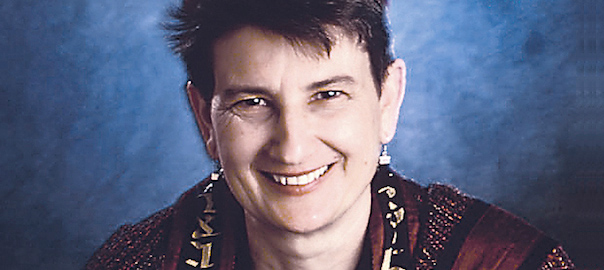Lost and Found: The Presence of Women in the Observance of Rosh Hashanah

This article by Rabbi Lisa Edwards, was first published in 1997 in the Central Conference of American Rabbis Journal. The article is an adaptation of the first chapter of Rabbi Edwards’ rabbinic thesis entitled, “A Horn of Plenty: A Re-Vision of the Shofar Service for Rosh Hashanah.”
Gates of Repentance, the 1984 mahzor from the Reform Movement, offers two choices for the Torah portion on Rosh Hashanah. Neither is Genesis 21, the traditional portion for the first day of Rosh Hashanah. The alternative selections were made for the number of reasons1, but one unplanned result of eliminating Genesis 21 is that it dramatically reduces the presence of women not only in the Torah and Haftarah readings, but in the entirety of the services for Rosh Hashanah, for female are present in the Torah services and virtually nowhere else.2
This absence of women elsewhere in the services is certainly not unique to the reform mahzor. In this matter the editors were in keeping with traditional mahzorim. It is only in the Torah selections that their editing exacerbated the problem. For if the reading of Torah can be said to be a centerpiece in the Rosh Hashanah morning service, then the presence of women in a traditional Rosh Hashanah service is significant.3 On Day One the congregation hears two stories in which God takes note of two women, Sarah amd Hagar. Genesis 21 begins with God “taking note of” (פקד) Sarah, whereupon she conceives and bears Isaac. It ends with the story of the expulsion of Hagar and Ishmael and their subsequent redemption by God in the wilderness. The congregation then hears the Haftarah about Hannah’s despair over her barrenness, her prayer to God, her encounter with Eli the priest who mistakes her prayer for the ravings of a drunkard, her eventual pregnancy, and her prayer of thanks to God.
Continue reading from the scanned article:
page 2 | page 3 | page 4-5 | page 6-7 | page 8-9 | page 10-11 | page 12-13 | page 14-15 | page 16-17 | page 18




